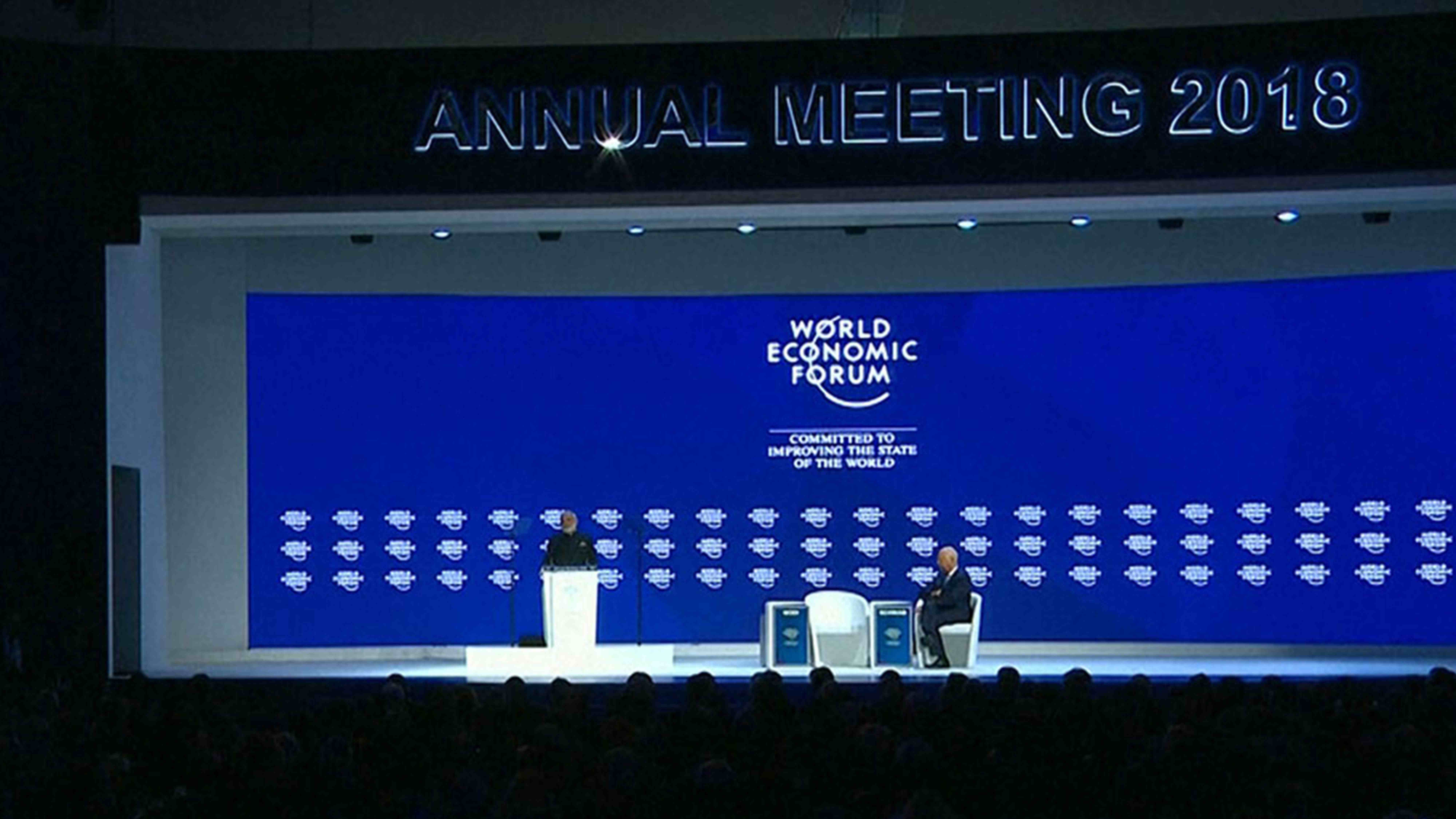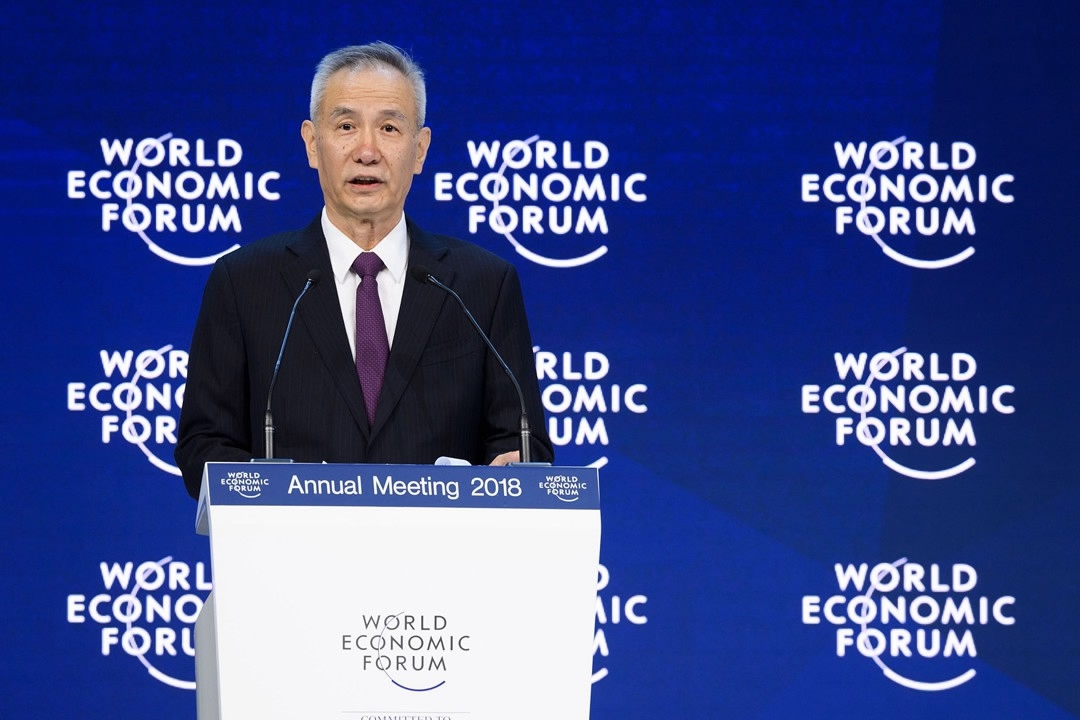
Business
11:27, 26-Jan-2018
Globalization vs. Protectionism at the World Economic Forum
CGTN

China, France and India are among the nations defending globalization against a wave of protectionist sentiment led by US President Donald Trump. Beijing is reinforcing its commitment to open markets, reform and global growth, but it’s not happy about new US tariffs imposed this week.
From France’s President Emmanuel Macron to India’s Prime Minister Narendra Modi, leader after leader at the World Economic Forum defended globalization, calling for more, not less.
Chinese President Xi Jinping’s speech at Davos last year has been called a turning point. It was a robust defense of globalization that China continues to uphold in 2018.
"After decades of development, a large-scale middle-income population has emerged in China, giving rise to a vast domestic market," said Liu He, director of the General Office of the Central Leading Group for Financial and Economic Affairs. "We believe that this open domestic market, with a fast growing middle-income population of 400 million, will contribute significantly to global development. The Belt and Road Initiative originated from China, but it is an idea that will deliver opportunity and benefits to the whole world.”

Liu He, director of the General Office of the Central Leading Group for Financial and Economic Affairs delivers a speech at the annual World Economic Forum on January 24, 2018 in Davos, Switzerland. /VCG Photo
Liu He, director of the General Office of the Central Leading Group for Financial and Economic Affairs delivers a speech at the annual World Economic Forum on January 24, 2018 in Davos, Switzerland. /VCG Photo
Anticipation for President Trump's keynote speech on Friday is growing, with many in Davos wondering if the world’s largest economy will find itself isolated on global economic policy.
On the eve of the trip, White House officials stressed that the policy of "America First" will benefit everyone.
“We’re going to the World Economic Forum to share President Trump’s economic story and to tell the world that America is open for business,” said White House Economic Adviser Gary Cohn.
“We want the world to invest in America and to create jobs for hard-working Americans. President Trump’s economic agenda has unleashed the US economy, and we are growing,” he said.
While a booming US economy is good for the world, many world leaders say trade barriers are not. And with new US actions expected soon on steel and aluminum, the world is wary that the US is putting up trade barriers while the rest of the world moves to pull them down.
Chinese Ministry of Commerce spokesman Gao Feng said, “I would like to reiterate that cooperation is the only correct choice for both China and the US. China’s door of cooperation and dialogue is always open. We hope that the China-US trade frictions won’t get escalated, and the two sides can resolve their conflicts and facilitate pragmatic cooperation through a constructive way.”
“Meanwhile, China will take all appropriate measures to firmly protect its own legitimate rights and interests, while coping with those unilateral and protectionism actions that don’t follow WTO’s rules.”
As the US raises tariffs, Pacific and Asian nations are lowering them. Eleven nations are set to sign a renamed Trans-Pacific partnership next month.
It could have been 12. Up until last year, the US led those negotiations, but President Trump pulled out of the agreement in his first few weeks in office.

SITEMAP
Copyright © 2018 CGTN. Beijing ICP prepared NO.16065310-3
Copyright © 2018 CGTN. Beijing ICP prepared NO.16065310-3